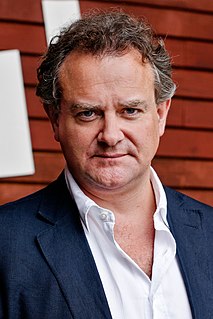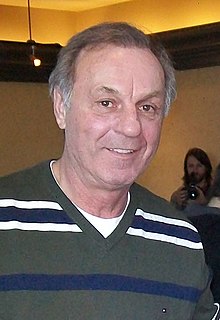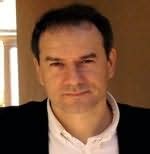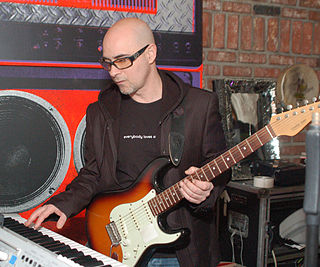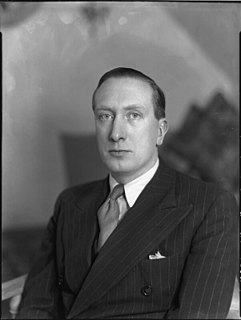A Quote by Hugh Bonneville
Julian Fellowes doesn't come to the set, except maybe once every six weeks, for whatever reason. He's not a producer, in that sense. But if you write him a one-line question, he'll write you a three-page answer.
Related Quotes
Write every day, line by line, page by page, hour by hour. Do this despite fear. For above all else, beyond imagination and skill, what the world asks of you is courage, courage to risk rejection, ridicule and failure. As you follow the quest for stories told with meaning and beauty, study thoughtfully but write boldly. Then, like the hero of the fable, your dance will dazzle the world.
I was once doing a question and answer period with the novelist Jane Smiley in a bookstore and someone asked us what our processes were and Jane said hers and then I said mine and Jane said, "Well, if I had a student like that I'd force him never to write like that again because you could never write a novel in the way that you write poetry."
I, myself, write to change my life, to make it come out the way I want it to. But other people write for other reasons: to see more closely what it is they are thinking about, what they may be afraid of. Sometimes writers write to solve a problem, to answer their own question. All these reasons are good reasons. And that is the most important thing I'll ever tell you. Maybe it is the most important thing you'll ever hear. Ever.
Every once in awhile, find a spot of shade, sit down on the grass or dirt, and ask yourself this question: “Do I respect myself?” A corollary to this question: “Do I respect the work I’m doing?” If the answer to the latter question is NO, then the answer to the former question will probably be NO too. If this is the case, wait a few weeks, then ask yourself the same two questions. If the answers are still NO, quit.
I don't know why I write. The honest answer is that I don't have an answer. I wouldn't die if I couldn't write fiction. Actually keel over and die - it's unlikely. But quite quickly writing has come to feel like the only thing I really know how to do. And I go a bit stir crazy if I don't write more or less every day. But that makes writing sound like a mood-regulator, a way to regulate anxiety or depression, and it doesn't really come down to that.
Never having thought of writing for the guitar, I asked Julian Bream for a chart which would explain what the guitar could do. I managed to write some rather pretty pieces for him, except that the first six notes of the first piece all need to be played on open strings. So when he begins to play the audience will probably think he's tuning the bloody thing up!
The secret to writing is just to write. Write every day. Never stop writing. Write on every surface you see; write on people on the street. When the cops come to arrest you, write on the cops. Write on the police car. Write on the judge. I'm in jail forever now, and the prison cell walls are completely covered with my writing, and I keep writing on the writing I wrote. That's my method.
